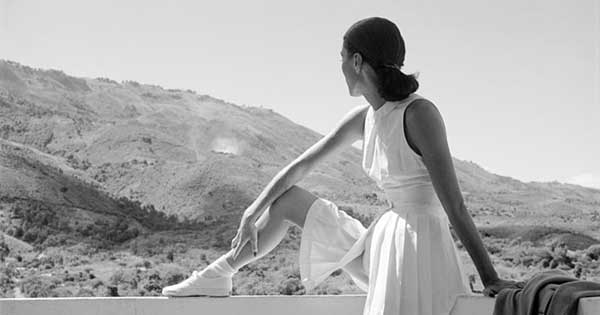Where There’s a Will …
Do we think, therefore we do—or is it the other way around?

When our mother decided to resume her college education—she was 30 years old and had five children and no money—we did not give it much thought. We were 11-year-old twins (my sister and I), a brother 10 months older, and two younger sisters. Our father was a farmer, and she was a farm wife. The year was 1954. But as time passed and I grew to become 30 and then older than 30, I came to see her decision as emblematic of free will, as an action symbolic of one of my deepest beliefs, a belief so ingrained that it seems innate, even though there’s a good chance it’s not true. My belief is that in this life you can do whatever you deeply desire to do. Your choice. (Okay, there are a few exceptions. You can’t swim across the Atlantic, even if you want to.)
But neuroscience has a different story to tell. (It’s told in Christof Koch’s excellent book Consciousness: Confessions of a Romantic Reductionist.)
In 1983 the neuropsychologist Benjamin Libet set up an experiment to determine whether a decision happened in the expected order. Say there’s an apple on the table and you want it. The expected order is: you decide to reach for the apple. Your brain communicates this intention to the premotor cortex, neurons responsible for planning and executing hand movements. (Koch explains that the faint echo of the neurons’ electrical activity is called the “readiness potential.”) These neurons relay the command to the motor cortex, which relays the command to the motor neurons in the spinal cord. Then your arm muscles contract, and you grab the apple. In Koch’s words, the expected order is that the mind chooses and the brain acts.
But in Libet’s experiment, which has been replicated but remains controversial, it didn’t happen that way.
Libet attached an electroencephalograph to the scalp of each subject to measure the activity of neurons in various parts of the brain during the course of deciding to do something and then doing it. The decision was to move a hand. Each person was instructed to move his or her hand whenever the desire arose, to report the precise time this wish or intention to move the hand appeared, and then to go ahead and move the hand. Subjects sat in front of a clocklike face with a light going around like a minute hand, only faster, so that milliseconds could be reported. (In another experiment Libet established that the participants could report the time the intention occurred within 80 milliseconds—very accurately.)
The decision to move the hand occurred in the following order. First neurons fired in the premotor cortex (neurons responsible for planning and executing hand motions). These neurons communicated to the motor cortex, which fired, sending instructions to the motor neurons in the spinal cord that make the muscles contract. At this point—and not before—the subject “decided” to move his or her hand. The “decision” to move the hand occurred before but extremely close to the time the hand moved, a long 350-400 milliseconds after the brain began the process of signaling the hand to move.
What are we to make of this? Is it me or my brain that decides things? Koch writes, “At least in the laboratory, the brain decides well before the mind does; the conscious experience of willing a simple act—the sensation of agency or authorship—is secondary to the actual cause.”
Of course, flicking a wrist is a small thing. Still, if Libet’s experiment and subsequent experiments that were able to replicate it turn out to be trustworthy, as Koch suspects they are, where are we in terms of free will? (In his paper “Do We Have Free Will?” Libet proposes that what we do have is the conscious ability to refuse a wish.)
The other day, in Seattle’s University District, I was walking down a hill toward a bus stop, intending to catch a Metro bus home, meanwhile mulling on this problem of free will. But then I passed a café. Without a second thought (without a first thought?), I veered off course, walked in, and ordered up a mug of hot chocolate. Do we really know what we want or intend to do? Or is our brain doing our intending for us?
Our mother, Barbara H. Long, graduated summa cum laude from Washington College, and the Baltimore Sun pictured her standing with her bookbag beside a tractor on which sat my father. She went to graduate school, got her PhD with high honors the year I graduated from college, and distinguished herself in a career as a research psychologist.
A woman’s decision to return to college and then to go to graduate school at that time and in those circumstances was extraordinary. How did Mother’s decision come about? Did her brain kick into gear before she made her big decision? Did her brain desire—more affluence?; more intellectual stimulation?; a profession with its duties and affinities?—before she consciously decided to do it?
Or did she just decide she wanted to do it and then did it? Of her own “free will.”

